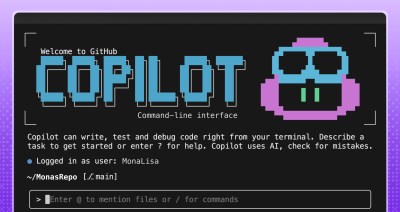Scripts to Rule Them All
At GitHub we have a lot of software running our product and company. We also have a lot of potential contributing members. Being able to get from git clone to…
At GitHub we have a lot of software running our product and company. We also have a lot of potential contributing members. Being able to get from git clone to an up-and-running project in a development environment is imperative for fast, reliable contributions. A consistent bootstrapping experience across all our projects reduces friction and encourages contribution.
With practically every software project, developers need to perform the following tasks:
- bootstrap
- run tests
- run continuous integration
- start app
At GitHub, we have normalized on a set of script names for all of our projects that individual contributors will be familiar with the second after they clone a project. We call them “Scripts to Rule Them All”.
Here’s a quick mapping of what our scripts are named and what they’re responsible for doing:
-
script/bootstrap– installs/updates all dependencies -
script/setup– sets up a project to be used for the first time -
script/update– updates a project to run at its current version -
script/server– starts app -
script/test– runs tests -
script/cibuild– invoked by continuous integration servers to run tests -
script/console– opens a console
Each of these scripts is responsible for a unit of work. This makes them composable, easy to call from other scripts, and easy to understand.
For example, script/bootstrap is only responsible for dependency management. script/setup initially calls script/bootstrap and then has its own code that will set a project to an initial state. script/test can be called on its own in a development environment to run tests, but is also called by script/cibuild by our CI server. script/console will load a development console on its own, but if appended with an environment name, will load the console for that environment.
Another advantage of consistent script names is language agnosticism. This means the scripts themselves can be written in whichever language is appropriate for the maintainers or the project. It also means the conventions can work for projects of varying languages and frameworks. This ensures an individual contributor can do things like bootstrap or run tests without knowing how to do them for a wide range of project types.
For example, script/bootstrap might call bundle install, npm install, carthage bootstrap, or git submodule update.
Normalizing on script names not only minimizes duplicated effort, it means contributors can do the things they need to do without having an extensive fundamental knowledge of how the project works. Lowering friction like this is key to faster and happier contributions.
Read More
We’ve created github/scripts-to-rule-them-all as a home for this pattern. In this repository, you’ll find working examples of scripts that make use of this technique as well as more detailed responsibilities of each script.
Written by
Related posts

From pixels to characters: The engineering behind GitHub Copilot CLI’s animated ASCII banner
Learn how GitHub built an accessible, multi-terminal-safe ASCII animation for the Copilot CLI using custom tooling, ANSI color roles, and advanced terminal engineering.

When protections outlive their purpose: A lesson on managing defense systems at scale
User feedback led us to clean up outdated mitigations. See why observability and lifecycle management are critical for defense systems.

Post-quantum security for SSH access on GitHub
GitHub is introducing post-quantum secure key exchange methods for SSH access to better protect Git data in transit.